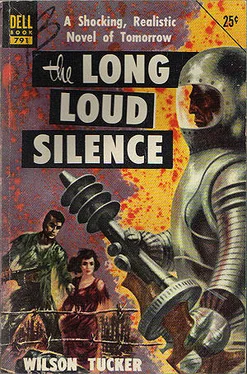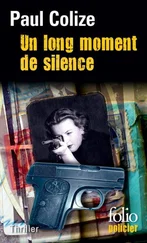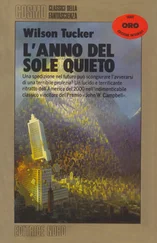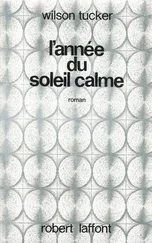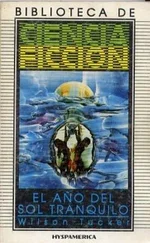Wilson Tucker - The Long Loud Silence
Здесь есть возможность читать онлайн «Wilson Tucker - The Long Loud Silence» весь текст электронной книги совершенно бесплатно (целиком полную версию без сокращений). В некоторых случаях можно слушать аудио, скачать через торрент в формате fb2 и присутствует краткое содержание. Город: New York, Год выпуска: 1952, ISBN: 1952, Издательство: Rinehart, Жанр: sf_postapocalyptic, на английском языке. Описание произведения, (предисловие) а так же отзывы посетителей доступны на портале библиотеки ЛибКат.
- Название:The Long Loud Silence
- Автор:
- Издательство:Rinehart
- Жанр:
- Год:1952
- Город:New York
- ISBN:0-89968-375-4
- Рейтинг книги:3 / 5. Голосов: 1
-
Избранное:Добавить в избранное
- Отзывы:
-
Ваша оценка:
- 60
- 1
- 2
- 3
- 4
- 5
The Long Loud Silence: краткое содержание, описание и аннотация
Предлагаем к чтению аннотацию, описание, краткое содержание или предисловие (зависит от того, что написал сам автор книги «The Long Loud Silence»). Если вы не нашли необходимую информацию о книге — напишите в комментариях, мы постараемся отыскать её.
The Long Loud Silence — читать онлайн бесплатно полную книгу (весь текст) целиком
Ниже представлен текст книги, разбитый по страницам. Система сохранения места последней прочитанной страницы, позволяет с удобством читать онлайн бесплатно книгу «The Long Loud Silence», без необходимости каждый раз заново искать на чём Вы остановились. Поставьте закладку, и сможете в любой момент перейти на страницу, на которой закончили чтение.
Интервал:
Закладка:
He swam for one of the tiny spits of land he had seen in midstream while reconnoitering in the early evening, swam and floated for any of the islands that would give him a brief rest before pushing on to the silence beyond. The hatred still churned within him, hatred now for his own bitter futility and silly hopes that he could live like a man again. Hatred for the injustice that had been done him after two years of watchful waiting and crafty planning; he had succeeded in crossing the forbidden river only to have his triumph hurled in his face, and now he was literally crawling back again with nothing left to him but his life, a naked and defenseless body returning to the dead silence.
He pushed on, increasing the bite of his strokes.
For a flashing instant he wished he could have spread the disease beyond stopping, could have run free through hundreds of towns and villages spewing a choking death as he ran. He wished he could have pulled the smug and stupid western states down to his own level by carrying the plague to the mountains, could have shown them what really lay on the eastern side of the river.
Gary paddled on in the darkness until he felt a mixture of mud and sand beneath his feet. Pulling himself out of the water, he got to his feet and turned to shake an angry fist at the Louisiana shore.
“You sonsabitches!”
The farm woman in the riddled taxi would have appreciated that; the anonymous man whose body had been hurled into the frozen creek might even have grinned with the humor of it. Clumsy Harry, in his ignorant haste to crawl the cable, would have laughed out loud.
12
THE LONG sparse sliver of land jutted out into the blue-green waters of the Gulf, tiny swells running up to foam on the baking sandy beach. That alone had not changed. The Florida sun was hot and uncomfortable in midsummer.
Gary pawed through the charred remains of the old fisherman's cabin, seeking some slight clue to the fate of its occupants, something to indicate how long ago they had departed — and in what manner. He wanted desperately to know how long ago the familiar shack had burned to the ground.
He walked along the glaring white shoreline and stared out to sea, remembering how he and Oliver had fished there, how Sally had watched a sail which was quite invisible to them beating across the Gulf. Their old mail truck was gone, vanished completely with no remaining sign of how it had left. The ruins of the cabin still held the cooking stove, a mass of wrecked and useless metal now that was rapidly rusting away; that and some miscellaneous scrap which had not survived the fire in any recognizable form. A part of the wooden causeway to the mainland had been broken up and carried away, or burned on the spot. Other parts of it sagged with rotten, collapsing timbers. The wind, the rain and the water had destroyed all traces of human passage other than his own fresh footprints.
Oliver was gone, Sally gone — the baby gone. Where?
He kicked angrily at the charred wood and realized that the initial advantage of wintering here was no longer an advantage — it had now become a definite, deadly liability. Too many of the survivors were moving down from the North to escape the punishing winters, too many of them had discovered the warm sands and the seas filled with food. He knew that those who still survived this year were the deadliest, the hard core of a savage, steadily dwindling life east of the Mississippi. He stopped his pacing to count and frown. This year was… what?
The fifth year? Five years since the bombs fell? In which of those years, then, had strangers found the tiny cabin, sacked it, burned it?
His bare foot came down on an artificial something which dug into his skin and he bent over to examine it, pry it from the sands which half buried it. The wooden link chain he had carved and given to Sally… for Christmas, one of those years ago.
Abruptly, Gary quit the island, conscious of his exposed position.
13
HE HAD to find something to eat.
Three days without food were racking his stomach with pain, causing his guts to rumble and ache. The air of the cave was foul and dead from his refuse, blurring his wits and creating a dangerous drowsiness. A bucket for drinking water in the rear of the cave contained a scant half inch of liquid — he could make that stretch another day if need be, but he had to have something to eat soon. The last of the few edible roots he had ripped from the frozen ground were gone and if he delayed longer, he would be too weak and dulled to fight.
Gary picked up his .22 rifle and crawled to the mouth of the cave to search the snow-covered plain.
In earlier years he had favored the shotgun or the heavier rifle, along with many men who wanted or needed the greater distance and more powerful shell. But other men who clung stubbornly to those heavier rifles were no longer alive. The crack of a heavy carries a long distance — too long a distance across the silent, watchful land. The crack of a gun meant man , and a man fired only to bring down food. He had quickly discovered what a smaller gun could do, discovered that it carried a far less betraying noise but, if he were near enough, could bring down a man just as easily. Gary let the other hunters with heavy rifles stalk the game and reveal their presence — and then eliminated them with the .22. There was so little food to be had that no one hesitated to close another mouth.
The plain before him was clear, white and bright with fresh-fallen snow. Nothing moved across his vision.
He carefully parted the brush and wriggled through the mouth of the cave, pausing every few inches to look and listen and sniff the air. The hillside was barren of life or movement as he emerged into the open, and he rose to his knees the better to search the field below and the rising slope of the hill behind him. A man had very nearly killed him there, three or four years before. The man had lain for days above the cave mouth waiting for him to emerge, slashing down with a rusted bayonet as his head and neck protruded through the opening. His only mistake was that he was too slow, his long hunger robbing his mind and muscles of concerted action. Gary caught the hand that held the bayonet and yanked him down. Afterwards he strung the hill with concealed wires.
Moving guardedly down the hill, he paused to look back at his revealing tracks in the snow. They disclosed his hiding place, advertised his presence, but there was nothing he could do about it now. It would mean the use of extra caution when returning to the cave, but meanwhile the snow would also reveal any other living thing that moved, would reveal an intruder. Snow usually brought into the open what few rabbits that remained, snow betrayed the tracks and trails of chipmunk, grey squirrel, field mice — anything edible. He set traps when he could; ammunition was scarce, valuable. He had managed to loot and steal barely enough to last him through the winter.
At the base of the hill Gary settled down against the white frozen ground, unmoving, listening, his taut nostrils held to the wintry air. There was nothing, no one beside himself. A part of him hungered for the past when there had been others, other men and women moving around without danger to themselves so long as they took reasonable precautions. He liked to remember a winter and a farmhouse in Wisconsin, a family who lived in the old familiar way, a radio, a little girl. And three meals a day. That had been a long time ago, many years ago when he was younger and ate more regularly than he did now. Now he counted himself fortunate when he had something to eat two or three times in the same week and now that enforced hunger was leaving its marks on his body. Now he bitterly resented a competing mouth, and that other mouth resented his.
Читать дальшеИнтервал:
Закладка:
Похожие книги на «The Long Loud Silence»
Представляем Вашему вниманию похожие книги на «The Long Loud Silence» списком для выбора. Мы отобрали схожую по названию и смыслу литературу в надежде предоставить читателям больше вариантов отыскать новые, интересные, ещё непрочитанные произведения.
Обсуждение, отзывы о книге «The Long Loud Silence» и просто собственные мнения читателей. Оставьте ваши комментарии, напишите, что Вы думаете о произведении, его смысле или главных героях. Укажите что конкретно понравилось, а что нет, и почему Вы так считаете.
